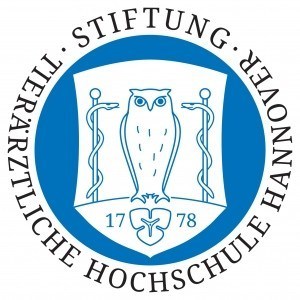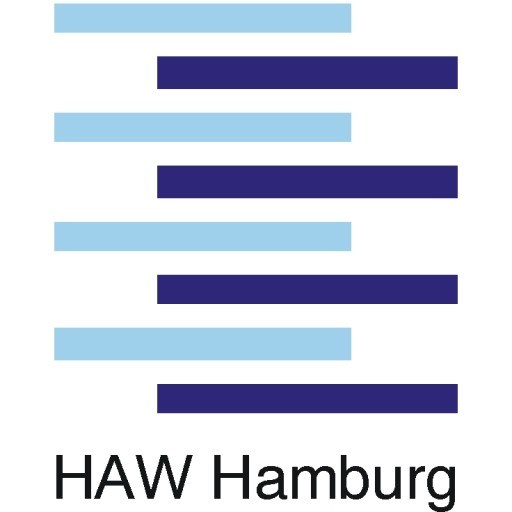Photos of university
Water Resources and Environmental Engineering at Leibniz University Hannover is a comprehensive master's degree program designed to prepare students for innovative and sustainable solutions in the management and protection of water resources and the environment. The program emphasizes interdisciplinary knowledge, combining principles from civil engineering, environmental science, hydraulic engineering, and environmental technology to address global challenges related to water scarcity, pollution, and ecological conservation. Students will engage with advanced topics such as hydrological modeling, water treatment processes, wastewater management, flood risk assessment, and the development of resilient infrastructure. The curriculum integrates both theoretical foundations and practical applications, often involving laboratory work, field studies, and project-based learning to foster technical competence and analytical skills. The program aims to equip graduates with the ability to design, optimize, and manage water-related systems in urban and rural settings, considering environmental sustainability and societal needs. Collaboration with industry partners, research institutions, and local communities is a key feature, providing students with valuable insights into real-world problems and innovative solutions. Graduates of this program are well-qualified to pursue careers in environmental consulting, water resource management, civil engineering firms, governmental agencies, and research institutions. The program also offers opportunities for international exchange and research collaboration, enabling students to gain global perspectives on water and environmental issues. With state-of-the-art facilities and a committed academic staff, Leibniz University Hannover provides an enriching environment for students passionate about protecting natural resources and advancing technological progress in environmental engineering.Graduates will be prepared to contribute effectively to sustainable development and environmental protection initiatives worldwide, making a positive impact on society and the planet.
Water Resources and Environmental Engineering (WATENV) at Leibniz University Hannover is a comprehensive, interdisciplinary master's program designed to prepare students for challenging careers in the fields of water management, environmental protection, and sustainable development. The program offers a solid foundation in the fundamental principles of hydrology, hydraulic engineering, environmental sciences, and water resources management, combining theoretical knowledge with practical application. Students will engage with advanced topics such as water supply systems, wastewater treatment, flood risk management, integrated water resources management, and environmental impact assessment. The curriculum emphasizes the importance of sustainable and innovative solutions for addressing global water challenges, including climate change, urbanization, pollution, and resource scarcity.
Throughout the program, students benefit from a combination of lectures, laboratory work, field excursions, and project-based learning. They are encouraged to develop analytical skills, problem-solving abilities, and technical proficiency to design, analyze, and manage water-related projects effectively. The courses are taught by experienced faculty members with expertise in hydrology, environmental engineering, and related disciplines, fostering an engaging learning environment that promotes research and innovation.
The program also provides opportunities for international exchange and collaboration, enabling students to broaden their perspectives and gain valuable experience working in diverse cultural and professional settings. Practical training modules, including internships and industry projects, connect theoretical concepts with real-world applications, ensuring graduates are well-prepared for careers in academia, government agencies, consulting firms, and industry sectors focused on water and environmental management.
Graduates of the Water Resources and Environmental Engineering master's program will acquire the technical skills, scientific knowledge, and ethical awareness necessary to contribute effectively to sustainable development and environmental conservation initiatives worldwide. The program aims to produce engineers and environmental scientists capable of solving complex water-related problems through innovative research, sustainable planning, and responsible management practices.
Language requirements: English language proficiency is typically required for admission to the Water Resources and Environmental Engineering (WATENV) program at Leibniz University Hannover. Applicants may need to demonstrate proficiency through standardized tests such as TOEFL or IELTS, or provide evidence of previous education conducted in English. Specific score requirements can vary; thus, prospective students should consult the university’s official admissions guidelines.
Entry qualifications include a recognized bachelor's degree or equivalent in engineering, environmental sciences, civil engineering, or a related field. The minimum qualification usually corresponds to a German "Bachelor's" with good academic standing, often requiring at least a 2.5 grade on the German grading scale or equivalent. Applicants need to submit formal transcripts, degree certificates, and a CV outlining relevant academic and professional experience.
Prerequisite subjects may include mathematics, physics, chemistry, and basic engineering principles. To ensure adequate preparation, applicants who lack certain prerequisites might be advised to complete additional qualifying coursework before enrolling in the master's program. Some programs may also require a motivation letter explaining their interest in water resources and environmental engineering, as well as letters of recommendation from academic referees.
Applicants whose native language is not English or German are often required to provide proof of language proficiency in English through standardized testing scores as mentioned above. In addition, German language skills are not typically mandatory for the program if instruction is entirely in English, but knowledge of German can be beneficial for practical courses, internships, or participating in local research activities.
The admissions process may also consider relevant work experience, especially for applicants transitioning from related fields or with professional backgrounds in water management, environmental protection, or civil infrastructure. Some programs may have an application fee, and students must submit all required documents within specified deadlines, usually around mid-year for the subsequent academic year's intakes.
In summary, program requirements for the WATENV master's program at Leibniz University Hannover entail demonstrating English language proficiency, holding a relevant undergraduate degree with strong academic record, providing detailed academic documentation, and possibly fulfilling prerequisite coursework. The university emphasizes the importance of motivation and relevant experience, aiming to select candidates with the necessary background and interest in advancing water resources and environmental engineering disciplines.
The financing of the Water Resources and Environmental Engineering (WATENV) master's program at Leibniz University Hannover primarily involves a combination of public funding, university resources, and possible scholarship opportunities. Being a publicly funded university in Germany, Leibniz University Hannover benefits from governmental support which ensures that tuition fees for international and domestic students are relatively low compared to private institutions. Typically, students enrolled in master's programs in Germany pay semester fees that cover administrative costs, public transportation, and student services. These fees can range from approximately 250 to 350 euros per semester, depending on the specific semester and the services included.
Additional financing options include scholarships provided by the German Academic Exchange Service (DAAD) which offers various funding programs for international students pursuing master's degrees in Germany. These scholarships often cover partial or full tuition fees, living expenses, health insurance, and travel costs. Applicants are generally evaluated based on academic achievement, motivation, and relevant experience. Some scholarships are specifically aimed at students from certain regions or fields of study, meaning that WATENV students may find relevant funding opportunities through these channels.
Moreover, students are encouraged to seek financial support from the Leibniz University Hannover's own scholarship programs or the German government's funding initiatives. Many students also supplement their income through part-time work permitted under the regulations for international students, in accordance with residence permit stipulations. Internships and project work related to the Water Resources and Environmental Engineering field may provide additional funding opportunities, especially if integrated into the curriculum or through cooperative agreements with industry partners.
Research grants and assistant positions are another possible source of financing. Master's students with a focus on research might participate in funded projects under the supervision of faculty members, which often include a stipend or wage. Furthermore, some students may secure private funding or sponsorships from organizations interested in water resource management and environmental protection, aligning with their field of study.
Finally, for students planning to continue their academic careers, some funding options are available for doctoral studies or research stays abroad, which can further support initial financing of their master's studies at Leibniz University Hannover. Overall, the combination of university subsidies, governmental grants, scholarships, part-time employment, and research-related funding creates a diverse and accessible financial landscape for students enrolled in the WATENV program.
Water Resources and Environmental Engineering at Leibniz University Hannover is a comprehensive master's degree program designed to educate students in the sustainable management and technical development of water resources and environmental systems. The program covers a broad spectrum of topics including hydrology, hydraulics, water quality, environmental protection, and resource management, providing students with both theoretical knowledge and practical skills necessary to address global challenges related to water and environmental sustainability. Throughout the program, students learn about innovative techniques for water purification, flood control, water conservation, and the development of environmentally friendly infrastructure. Emphasizing interdisciplinary approaches, the program prepares graduates for careers in research, consulting, industry, and public administration, where they can contribute to solving pressing environmental issues. The curriculum often incorporates laboratory work, field studies, and project-based learning, facilitating practical experience. Collaboration with local and international environmental agencies, as well as industries, offers students insights into real-world applications and current research trends. The program aims to develop competencies in environmental assessment, modeling, and policy advisory, making graduates competitive on the global job market. Students may have the opportunity to engage in research projects, internships, and exchanges with partner universities, enriching their academic and professional profile. Graduates are equipped to operate advanced water management systems, devise sustainable strategies for environmental conservation, and contribute to policy-making in water and environmental sectors. The program is aligned with current societal and technological developments, ensuring graduates are well-prepared for future challenges in water resources and environmental engineering. Overall, the master's in Water Resources and Environmental Engineering at Leibniz University Hannover offers a rigorous, interdisciplinary education crucial for sustainable development and environmental preservation worldwide.









